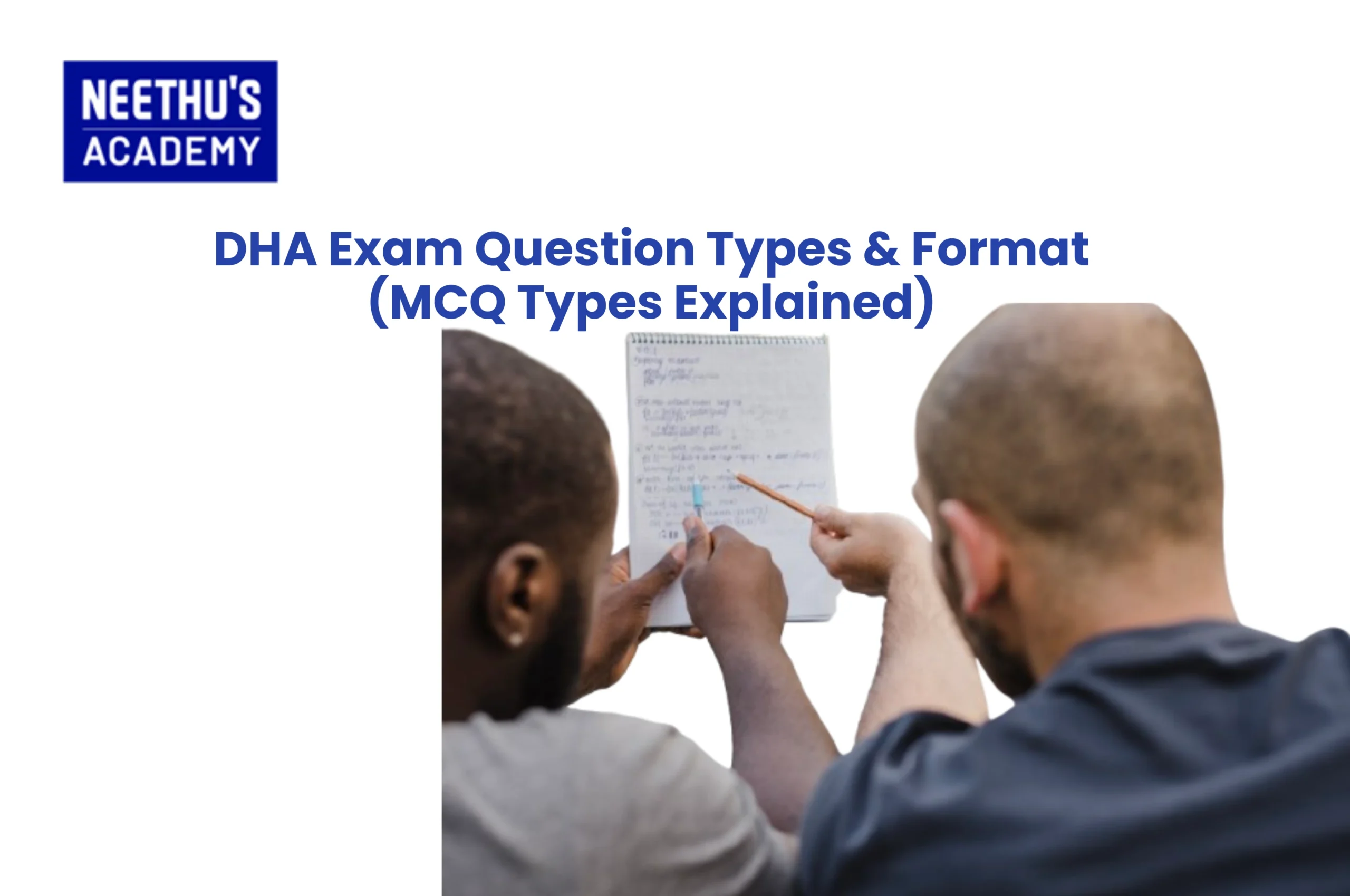Essay writing can be nerve-wracking at times. The IELTS writing task is no less of a challenge. In this test task, an…

IELTS Writing Linking Words: A Complete Guide for Band 7+
If you’re studying for the IELTS Writing exam, you’ll probably have come across the term linking words or cohesive devices. But what are they? And why are they so important in IELTS?
In this blog, we’ll discuss what linking words are, their usage, typical categories and examples, writing tips and tricks, and the most frequent mistakes made by candidates. Whether your goal is Band 7, 8, or above, this blog will assist you in mastering the application of linking words and improving your writing skills.
What Are Linking Words in IELTS Writing?
Linking words are words or phrases used to connect ideas, sentences, or paragraphs. They help readers follow your train of thought and understand the relationship between the points you’re making.
In the IELTS Writing band descriptors, Coherence and Cohesion make up 25% of the overall writing score. This means that even if your grammar and vocabulary are strong, weak organisation and poor flow can lower your score significantly.
Cohesive devices assist you in making your essay smooth. You just have to apply them sensibly and appropriately — you are not merely going to add them arbitrarily to impress the examiner.
Why Are Linking Words So Important in IELTS Writing?
Proper use of linking words assists you to:
Have a well-organized essay
Order arguments logically
Have an easy-to-read and easy-to-follow essay
Highlight or compare ideas appropriately
Lead the examiner through your ideas
In short, they help you write like a confident English speaker. Overuse or misuse of linking words, on the other hand, will make your writing unnatural, tense, or confusing.
Major Types of Linking Words in IELTS
The first step is to understand the different categories of linking words and when to use them before you can effectively use them. Below are the main types of cohesive devices employed in IELTS Writing, with some helpful examples.
1. Adding Words
Use these when you wish to provide supporting evidence or elaborate on a point.
Examples:
Besides
Also
Additionally
Similarly
Example sentence:
In addition to government initiatives, individuals should take responsibility for reducing plastic usage.
2. Contrasting Words
These are used when you wish to insert a contrasting fact or signal a contrast.
Examples:
However
Nevertheless
Though
Whereas
On the other hand
Despite / In spite of
Example sentence:
Some individuals are comfortable working from home. However, others think that office work enhances productivity.
3. Cause and Effect Linking Words
Apply these to express the cause of an action or the effect of a situation.
Examples:
Because
Therefore
Thus
As a result
Consequently
Owing to / Due to
Example sentence:
There is rising demand for renewable energy. As a result, governments are investing in solar and wind technologies.
4. Linking Words for Giving Examples
These assist you in showing or proving your point with evidence.
Examples:
For example
For instance
Such as
To illustrate
Example sentence:
Processed foods are usually rich in unhealthy ingredients. For instance, instant noodles have too much salt.
5. Linking Words to Show Sequence and Order
These are helpful to structure your essay in a coherent sequence, especially in Task 2 or process flowcharts in Task 1.
Examples:
Firstly / Secondly / Thirdly
Next
Then
Finally
Subsequently
Example sentence:
Firstly, kids learn well through interactive exercises. Secondly, experiential learning fosters creativity.
6. Linking Words for Summarising or Concluding
Use these to conclude your essay or rephrase your key arguments.
Examples:
In conclusion
To summarise
Overall
In short
All things considered
Example sentence:
In conclusion, although social media has its disadvantages, its benefits in communication and worldwide awareness cannot be downplayed.
Applying Linking Words in IELTS Writing Task 1
IELTS Writing Task 1 requires writing about data shown in graphs, charts, tables, or diagrams. Linking words are necessary to compare figures, explain trends, and express logical sequence.
Example application in Task 1:
The proportion of individuals who travelled by public transport rose incrementally from 2010 to 2020. In contrast, car travel fell slightly from 2010 to 2020.
Helpful categories for Task 1:
To compare: whereas, while, in comparison, in contrast
To describe change: increased, decreased, remained stable
To sequence steps (in process diagrams): initially, then, subsequently, finally
Having precise and consistent linking words means that the description of data is easy to follow and logically structured.
Using Linking Words in Task 2 of IELTS Writing
In Task 2, you will need to write an academic essay as a response to a question that can ask you to give an opinion, discuss two sides of a problem, or suggest solutions to a dilemma.
One idea should be given per paragraph, with explanation and examples supporting it, and the linking words make the transitions between your arguments smooth.
Sample paragraph in Task 2:
There are several reasons why individuals prefer living in the city. For starters, cities offer greater employment opportunities and better pay. Additionally, life in the city provides improved access to health care and education. Yet city life is not perfect, for it has its downsides: traffic jams and high expenses.
See how “firstly,” “moreover,” and “however” assist in organizing the paragraph and leading the reader through the various points.
Common Mistakes with Linking Words
The following are some errors that often lower writing scores in the IELTS test:
Repeating a linking word more than once
Using colloquial words such as “so” or “plus” in academic writing
Abusing linking words that do not fit into the context
Beginning every sentence with a linking phrase
Forgetting punctuation after connectors like “however” or “therefore”
How to Practice Linking Words for IELTS
The following are some errors that often lower writing scores in the IELTS test:
Repeating a linking word more than once
Using colloquial words such as “so” or “plus” in academic writing
Abusing linking words that do not fit into the context
Beginning every sentence with a linking phrase
Forgetting punctuation after connectors like “however” or “therefore”
Best IELTS Coaching Center In Kerala
In our IELTS Writing modules at Neethu’s Academy, we have specific practice sessions to use linking words effectively. We give comprehensive feedback on your writing tasks and identify where you can improve the coherence and cohesion. That’s why we are one of the top-rated IELTS coaching centers in Kerala and have helped hundreds of students score Band 7 and above.
Final Thoughts
Cohesive devices might be tiny, but they are extremely helpful in making you structure your writing, link ideas logically, and achieve a better score in the IELTS Writing module. Used in the right proportion and with precision, cohesive devices make your essay more readable and enable you to present your message more clearly.
To enhance your writing skills in IELTS, begin by learning and practicing different linking words. Learn how and when to apply them. And most importantly, get feedback from professional trainers so that you avoid common errors.
Frequently Asked Questions
Linking words are phrases or words employed to connect sentences, ideas, and paragraphs to provide logical flow and coherence in writing.
Linking words have a direct impact on your score for Coherence and Cohesion, which contributes 25% of the IELTS Writing band marks.
No, frequent use of the same connector will result in monotonous writing and lower lexical resource marks.
No, informal words such as “like” must not be used in IELTS Writing because formal academic writing is what is demanded.
Related Blogs
- All Posts
- IELTS
Speaking in front of someone may not be everyone’s cup of tea. But when it is a mandatory criterion to attain your…
A perfect English language proficiency is strictly required for intending nurses to practice in English-speaking countries. IELTS and OET are the most…
Course Enquiry
Error: Contact form not found.
Latest Posts
- All Posts
- canada
- CBT
- DELF
- DHA
- French
- GENERAL
- German
- Haad
- IELTS
- IQN NEW ZEALAND
- MOH
- NCLEX-RN
- NHRA
- OET
- OSCE
- Pearson Vue
- PROMETRIC
- PTE
- TOEFL
- Back
- NCLEX - NGN
- Back
- OET FOR PHYSIOTHERAPIST
- OET FOR PHARMACIST
- OET FOR DOCTORS



